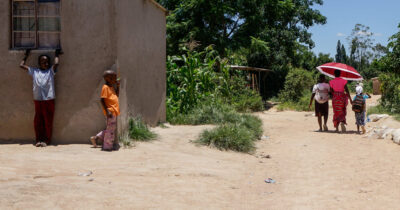The Feminist Peace Initiative, in collaboration with the Inclusive Global Leadership Initiative at the University of Denver, has launched the Feminist Peace Playbook: A Guide to Transforming U.S. Foreign Policy, released on 13th March 2025.
This publication serves as a comprehensive framework for reshaping foreign policy through a feminist lens, centering peace, justice, and community well-being over militarization and domination. The report draws inspiration from successful feminist movements in Korea and Philippines for what is possible when pushing against autocracy and fortifying democracy. The initiative sees the power of values in feminist movements as a significant remedy to militarism.
Designed as an actionable resource, the Feminist Peace Playbook outlines four key strategies:
- increasing public awareness of militarism
- redefining national security through community safety, dignity and well-being
- bridging divides to build power across movements
- grounding policy-making in grassroots advocacy and advance feminist peace
These strategies offer a transformative vision to counter deeply embedded militarized policies that continue to shape global conflicts and exacerbate inequalities.
The Playbook, co-produced by Channel Foundation’s grantee partners MADRE, alongside Women Cross DMZ and Grassroots Global Justice Alliance, challenges the traditional narratives of national security. It advocates for divestment from military-driven solutions and reinvestment in social infrastructures that prioritize dignity and safety.
A central theme of the Playbook is the need to break the cycle of militarism by amplifying feminist peace narratives in U.S. media, strengthening oversight mechanisms in policy spaces, and ensuring sustained philanthropic support for peace movements. It also underscores the environmental consequences of military expansion and the urgent need for a shift toward demilitarized climate justice solutions while envisioning human security as rooted in meeting people’s basic needs. As Harsha Walia, a Canadian activist notes, mass migration is not a crisis in itself; it is “the outcome of the actual crises of capitalism, conquest, and climate change.”
This resource is an invitation for policymakers, activists, and funders to rethink security, challenge harmful global power structures, and mobilize towards a world where peace is built through collaboration and care rather than coercion and conflict.







